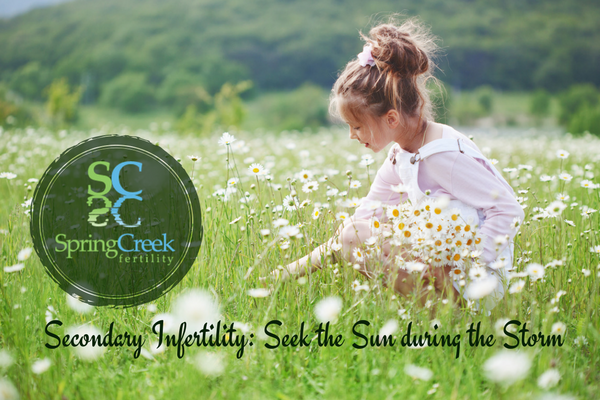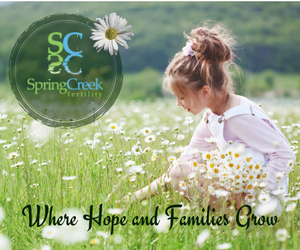 My husband and I both grew up in large families. We loved it and wanted to recreate that feeling in our own family. We wanted four kids and just assumed that’s what we would have. Babies one and two came with minimal “trying” and nothing during my pregnancies suggested our family journey would ever be different than planned. Then came baby number three. Funny to call him or her that, as we never met. There was no baby three for us.
My husband and I both grew up in large families. We loved it and wanted to recreate that feeling in our own family. We wanted four kids and just assumed that’s what we would have. Babies one and two came with minimal “trying” and nothing during my pregnancies suggested our family journey would ever be different than planned. Then came baby number three. Funny to call him or her that, as we never met. There was no baby three for us.
There were more babies we never met. And more. And so many more that we decided to get a little bit of help – at least what I thought was help at the time. I googled everything that I could on the subject. We tried some options at home, which didn’t work. I talked with my OB/GYN and he did some blood work and we tried a few fertility options like progesterone and clomid. I call these “light” fertility options because we never truly sought the help of those who specialized in infertility diagnosis and treatments.
But the truth of the matter is that there is nothing light about infertility. It’s so very heavy. It takes a toll on your body and your mind, your marriage, your social relationships – even your children. I remember the first time we announced a pregnancy to our children, then 3 and 5 years old. It was near Christmas. We had hung a stocking for our baby and the kids were playing and giving the baby gifts. That was the day I broke the news to them that the baby was gone. It broke my heart to hear their sweet, innocent sadness at being told the baby would not come. “But why Mommy? Where did our baby go?” Oh, how I wished I had an answer for them, but the truth was that I felt just like they did. I wanted to cry to my Mom and ask her where my baby went too.
Although there are so many reasons that primary infertility (not being able to have a first baby) takes a toll on couples, secondary infertility (not being able to have a second or third etc) is no less difficult. I’m not going to debate which is harder to go through. The truth is that we all have to deal with heartbreaking things in our lives, and no one can tell you that your grief is less than theirs. Your feelings are not quantified based upon others, but based upon you and only you.
From reading blog after blog and comment after comment, I can tell you that the feelings of infertility are universal. Losing a baby makes you sad, and mad, and confused. It feels like you’re at an amusement park called Hell and the rides bring you both hope and despair – and you visit the park every single month. Your days are sunny and hopeful, then dark and stormy. Over and over and over again.
I had those sunny and stormy days. But I also had my sweet babies begging for a sibling that I’d never be able to give them. (And I felt guilty for this). I had other infertile couples who thought me greedy for wanting MORE babies when they couldn’t even have one. (And I felt guilty for this). I had plenty of well-meaning family and friends who didn’t understand how we had two babies but couldn’t have more. I stopped wanting to be around them. (And I felt guilty for this). I am often told that I deal with stress and pain ridiculously well. I am not prone to anxiety in the least. Despite that, I’m telling you, infertility can break you before you realize it.
Despite being happy 10 years later, I still wish that my husband and I had sat down and really researched our options back then. I wish that we hadn’t remained so strong and so stoic through the whole thing – that those around us really knew how incredibly sad we were. That they understood what we felt as we watched everyone around us add to their families. That we had both had more support from others that had gone through what we did. It’s the reason I speak out on this subject whenever I can now. I want to help anyone else who might be like us 10 years ago.
So here’s my advice: Don’t give up hope and don’t stop moving toward your dream of building the family you want. Get support. Get answers. Maybe it will change your future, maybe it won’t. But you will have made that choice yourself, and there is strength and closure in that.
Check out RESOLVE
I love their message: You are not alone. This is probably the most comforting thing someone on the infertility path needs to know. They have so many resources available at your fingertips. Find information about Infertility, find Support Groups. If you’re like me and you’re on the other side of the journey, you can even volunteer to help others.
Also, I sincerely recommend you look at SpringCreek Fertility.
SpringCreek’s website is comforting. It’s beautiful. And do you know what I am most amazed at? There’s a link that says “Financial” – where they lay out the basic costs for different common fertility procedures. There’s no appointment, hidden behind a closed door, waiting to hear what it will cost you and being embarrassed for trying to crunch all those numbers in your head, with your emotions swirling.
I will be honest and tell you that PERCEIVED cost was our number one deterrent to seeking help from a fertility specialist. I know better now, but it’s too late for me. Don’t let it be too late for you.
SpringCreek Fertility believes that “Fertility is a holistic journey impacting both mind and body.” They offer holistic health classes such as yoga, meditation, Reiki, acupuncture, essential oils, massage etc etc…. I’m drooling, seriously.
There are also some available peer-led support groups:
- Fertility Challenges Peer-Led Support Group
- New & Expecting Mothers Peer-Led Support Group, Bumps & Babies
- Weight Management Peer-Led Support Group
These are people that HAVE experienced infertility and they KNOW what you’re going through. There is no one better to have a heart to heart with.
I could keep rambling on and on about SpringCreek, but I don’t have the space to tell you all the good things.
Go to the website. Start or finish your fertility journey. You won’t regret taking the time- I promise you that!
 If you’re struggling with secondary infertility, you don’t have to struggle alone. Check out SpringCreek Fertility, where hope and families grow. They offer a wealth of resources, expert care and even support groups. Using the latest research and technology, the fertility experts at SpringCreek Fertility have helped bring hundreds of happy, healthy babies into the world since 2014. They have succeeded where others have not.
If you’re struggling with secondary infertility, you don’t have to struggle alone. Check out SpringCreek Fertility, where hope and families grow. They offer a wealth of resources, expert care and even support groups. Using the latest research and technology, the fertility experts at SpringCreek Fertility have helped bring hundreds of happy, healthy babies into the world since 2014. They have succeeded where others have not.
If you have already visited another fertility center and are looking for a second opinion SpringCreek Fertility would like to offer that second consultation free of charge, with their double board certified REI specialist, Dr. Jeremy Groll.













